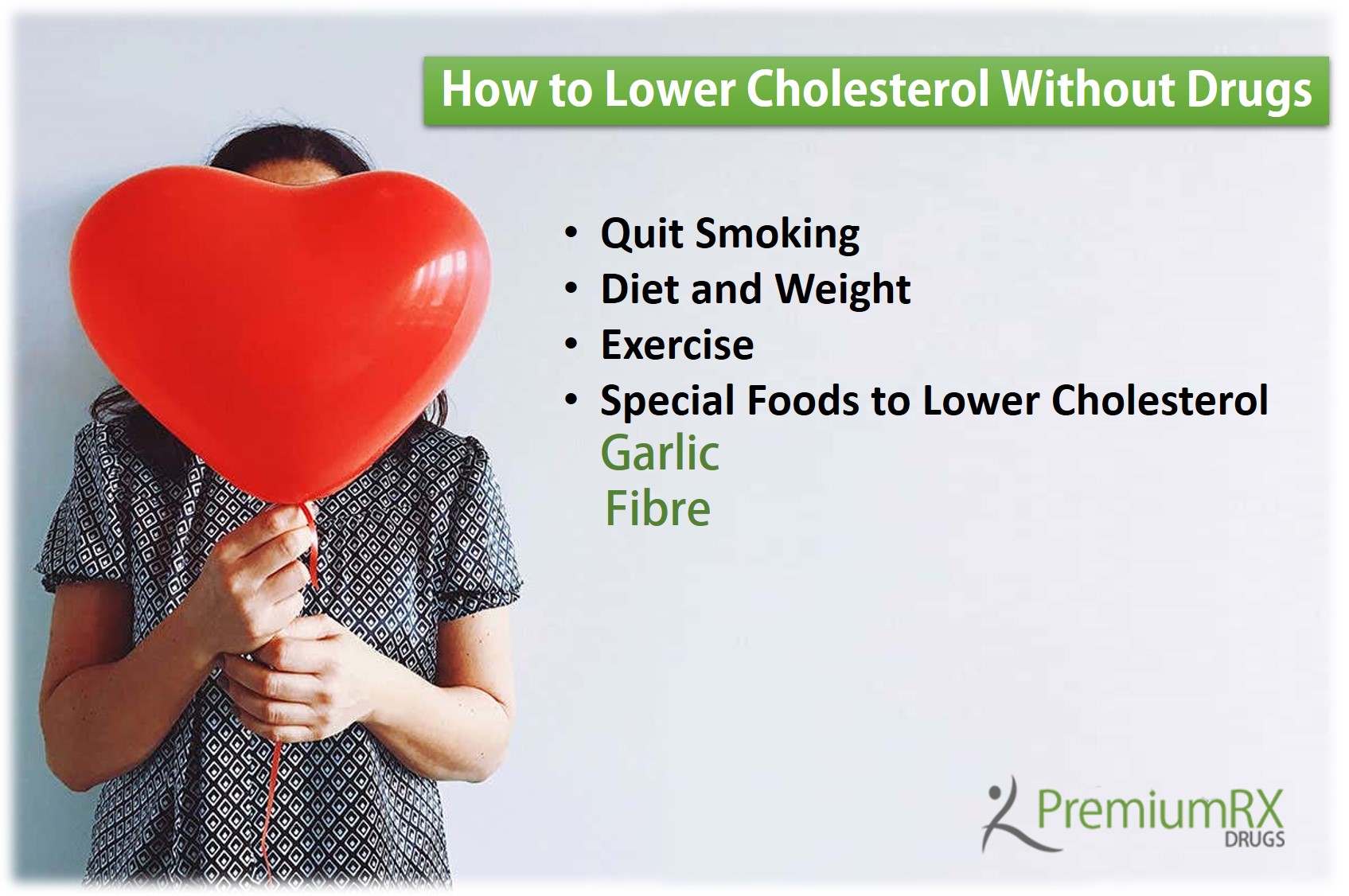High cholesterol levels or hypercholesterolemia could mean an increased risk of cardiovascular issues. Those who are concerned about it and want to reduce their risk don’t need to rely on medicinal treatment. Lifestyle changes like changing their diet and regular exercise can improve their heart health and benefit their body.
Lower Cholesterol Without Medicines
The treatment of high cholesterol majorly focuses on reducing the risk of associated cardiovascular health complications over the long term rather than reducing blood cholesterol. Stains are now the top-selling class of drugs worldwide, and new cholesterol drugs are formulated daily. Many people with high blood cholesterol want to improve their condition without medications. Various general measures are recommended for lowering cholesterol. When we think of alternative treatments, the first thing that comes to most minds is supplementing our diet. However, consult your health care specialist before you incorporate any supplement into your diet. There is no doubt that what you eat has a huge impact on your health. Highly processed foods contain a large amount of saturated fat and are high in calories, sugar, and sodium; some even include trans-fat. Saturated fat is believed to increase bad cholesterol or low-density lipoprotein (LDL) in the bloodstream. Eating a well-balanced diet, with few or no processed foods followed by appropriate portion sizes, will reduce your saturated fat intake. Also, not smoking, getting a lot of exercise, and maintaining a healthy weight are other general measures highly recommended for preventing cardiovascular disease.
Quit Smoking
Various studies suggest that quitting smoking lowers your risk of heart disease and increases your life expectancy regardless of how high your blood cholesterol levels are. So if you smoke, it is the most valid reason to kick off the bad habit. Doing it with dedication can even affect your cholesterol levels.
Diet and Weight
There is plenty of dietary advice out there for people with hypercholesterolemia or high cholesterol, but a few are clinically tested and proven effective. There is evidence that suggests that reducing the number of saturated fats in your diet can cause a significant reduction in cardiovascular events. This doesn’t mean you start eating a low-fat diet. Your focus should be on replacing the saturated food items with unsaturated fat. You can do it by adding more vegetable oils and fish and lessening the use of meat and high-fat dairy products. The sort of diet includes a lot of fruits, vegetables, legumes, nuts, whole grain products, poultry, and fish.
Exercise
Healthcare experts and physicians assume regular exercise can improve your heart health and reduce the risk of heart attack or other heart disease. However, it has not been studied at a higher level, so it remains a topic of debate. This doesn’t mean people with hypercholesterolemia won’t benefit from getting more exercise. Regular exercise is believed to positively affect a patient’s overall health, thereby reducing the risk of cardiovascular disease as well.
Special Foods to Lower Cholesterol
High cholesterol increases your risk of heart-related problems, including heart attacks and strokes. Medications can undoubtedly help lower cholesterol and improve your heart condition. If you are already undergoing a medicinal treatment, these special foods can improve your cholesterol-lowering effect.
Garlic—According to some research studies, garlic may decrease total blood cholesterol if taken regularly. Some studies say it may be beneficial in managing high cholesterol, while others suggest the natural remedy is not as effective as once thought. Taking a garlic supplement before surgery or with blood-thinning medicines may prolong bleeding and blood clotting time.
Fiber-rich foods can help lower overall cholesterol and bad cholesterol or LDL. Fibre-rich foods include fruits, vegetables, beans and legumes, bread and whole grains, and nuts. Taking a fiber supplement under the supervision of a health care specialist to help meet your daily fiber intake can help lower blood cholesterol and improve your condition. It is extremely important to consume plenty of liquid when you increase your fiber intake.
Finally, count your calories. When you switch to a heart-healthy diet, you may need to monitor your calorie intake for a while. Sometimes, lifestyle change is insufficient to lower cholesterol levels and prevent heart disease. If your health care specialist prescribes medications to bring back normal cholesterol levels, take it as your doctor tells while continuing your dietary additions and regular exercise. Lifestyle changes will keep your medication dose low and speed up the effectiveness of medical treatment.
Marie
Latest posts by Marie (see all)
- Revize Micro Gel 0.025% | Uses, Price, Side effects - April 9, 2025
- What is Evalon Cream: How to Apply, Benefit, who Can Use - April 4, 2025
- Understanding Avanair 200 mg: A Comprehensive Guide - April 4, 2025




